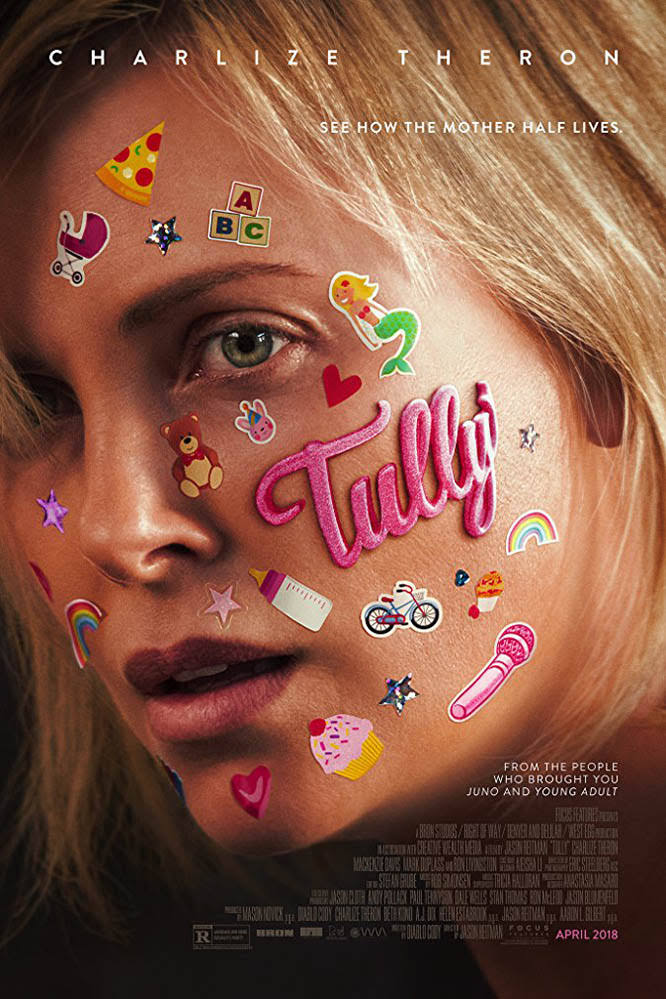
Let's Talk about "Tully"
Erin Burt
 When I first heard of the movie Tully, I couldn’t wait to see it. I was excited to see a realistic picture of motherhood brought to the big screen. A movie about an exhausted mom of a newborn and toddler, trying to balance all of life’s demands? Sign me up.
When I first heard of the movie Tully, I couldn’t wait to see it. I was excited to see a realistic picture of motherhood brought to the big screen. A movie about an exhausted mom of a newborn and toddler, trying to balance all of life’s demands? Sign me up.
However, Tully is not what I expected, and here is my honest review.
My Expectations
The trailer implied a story that brought to light the real life struggles that often accompany having a newborn. I was encouraged that postpartum emotional health seemed to be brought into the conversation in a fun yet real way.
Plot Twist
When exhausted mom, Marlo, is gifted a “night nanny” to help her get through the rough newborn stage, moms everywhere were saying, “Yes, please!”
As the film goes on, Marlo is in a car accident, and while she is hospitalized she is diagnosed with postpartum depression. It is then revealed that Tully is in fact a hallucination of Marlo’s younger self. As it turns out, all of the scenes that led up to this (including Tully in an intimate scene with Marlo’s husband while Marlo gives her direction) are in fact not actually reality, but a hallucination. This is then inappropriately diagnosed as postpartum depression.
Why This is a Problem
Some may think this is no problem, after all, plot twists and shocking revelations often occur in movies. However, this movie was marketed as a feel good “Mom Movie,” as if it was shining a light on the realities of motherhood and postpartum mental health. Instead, it gave a drastic and unrealistic version of postpartum psychosis, and even worse, referred to it as postpartum depression.
It is common for women to suffer from postpartum depression or anxiety. My concern is for the woman who is facing PPD and sees this movie. While the hallucinations are technically postpartum psychosis, Tully makes no mention of that disorder in the film.
Without a trigger warning, women who suffer from postpartum depression could be negatively impacted by the message in Tully.
I’m disappointed that there was an opportunity to bring real issues women face into the conversation, yet Tully is not a realistic depiction of women’s health issues.
If you are simply hoping to be entertained, Tully does an ok job of that. But if your hope is to see a movie that depicts a realistic view of postpartum motherhood, you will be disappointed.
I don’t recommend seeing Tully because my opinion is that women’s issues are real and deserve to be discussed in honest ways that empower women to seek the help they need. Tully confuses the line between symptoms of depression and psychosis, and could have a negative impact on women who see the film in a sensitive, emotional state.
Wendy is a mother of four who lives in central Illinois where she blogs at TheMessyMom.net.







